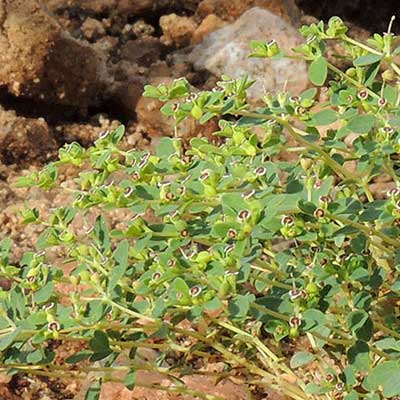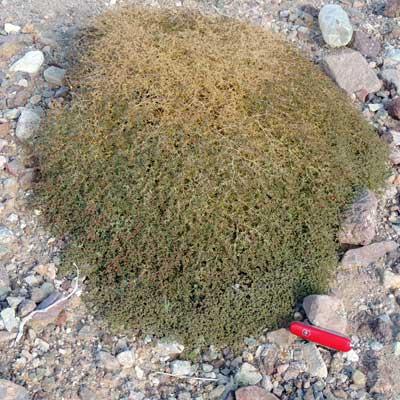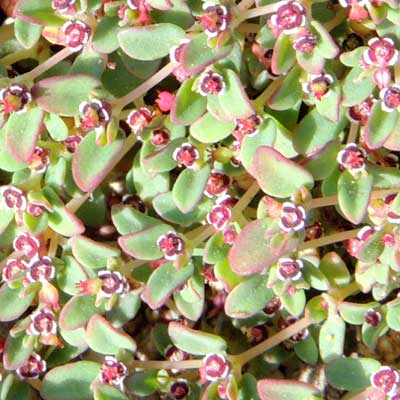Small-seed Sandmat
Chamaesyce polycarpa

Vulture Mountains, Maricopa Co., Arizona. August 2016.

Observed in a wash near the Palo Verde Mountains, Imperial Co., California. 16 Feb. 2013. Pocket knife at lower right for scale. A close-up of the inflorescences on the same plants is shown below.

PERENNIAL: Grows mostly low to the ground with
stems occasionally rising up to 15 cm.
LEAVES: The leaves are strictly opposite on the stems. Notice that the
leaf bases are unequal and that the margins are entire.
RANGE: Common on rocky slopes, desert washes and at roadsides
throughout the Sonoran Desert of Arizona and ranging into adjacent states.
FLOWERS: Minute flowers, usually one pistilate and many staminate, borne
in groups within an a minute involucre. What appears to be white petals are actually
petal-like appendages borne upon reddish glands on the rim of the
involucre. The involucres, cup-like structures, occur mostly at branch ends and from leaf
axils. Populations with larger, more showy inflorescences are common. These
plants bloom nearly year round.
UNARMED: No thorns, but the milky sap can be a skin or eye irritant.
FRUIT: Very small capsules, ca. 1 mm, are three-parted and each contains
usually three seeds. These seeds inside require high magnification to see their
smooth surface.